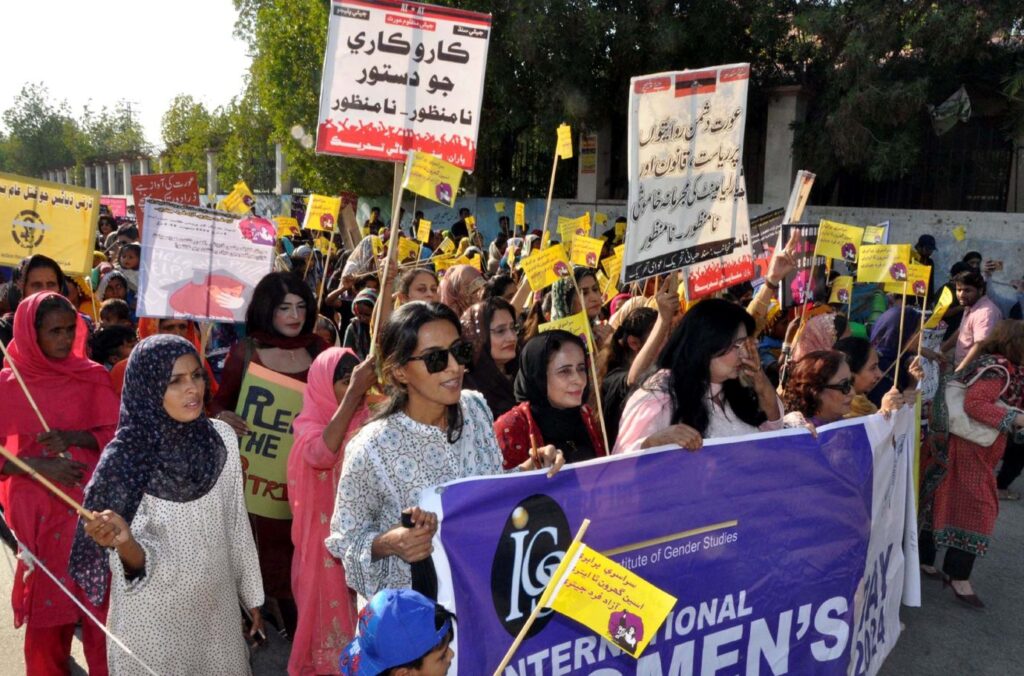There are no words left for outrage. Pakistan’s Bano Bibi was killed just months ago by a group of men disguised as uncles, brothers, protectors.
There are no new ways to gasp, to mourn, to protest. Bano’s name now joins a dirge echoing with the names of Mukhtaran Mai, Qandeel Baloch, Noor Mukadam, Sana Yousaf, and countless others. Their stories differ in detail but are identical in conclusion—women punished, mutilated, and erased for the cardinal sin of agency.
In Pakistan—a country that once paraded Benazir Bhutto, the first female Prime Minister, as a feminist beacon (only to see her maimed and assassinated)—the silent, systemic elimination of women who dare to live on their own terms continues unabated. Especially if they do not hail from the upper echelons of a fragmented and fractured society.
Each case is a tombstone. Each outcry, a temporary echo. I know this not as a distant observer, but as a witness.
During my time as a UNICEF intern at Darul Aman, I sat across from women whose faces bore the architecture of male rage—bruises, burn marks, broken spirits. One had fled her husband’s home barefoot in the dead of night. Another was locked away by her own parents for “dishonoring” them—later killed and then conveniently pardoned. These women weren’t just survivors; they were abandoned testimonies of a system designed to consume them.
It was during that same time that I had the rare opportunity to interview Mukhtaran Mai herself—an encounter that redefined my understanding of courage. She had turned the unspeakable horror inflicted upon her into a movement for dignity. But the eyes she spoke with—resolute yet heavy with sorrow—carried the unbearable burden of being both victim and activist. Pakistan loves its heroines silent, not screaming.
Qandeel Baloch, murdered by her own brother in 2016, became the cautionary tale of female audacity. A woman who dared to own her sexuality in a digital landscape still policed by tribal masculinity. They called her a disgrace. They called him “honorable.”
Noor Mukadam, in 2021, was decapitated in the heart of the capital by a man whose privilege shielded him until the very end. The nation cried. The courts ruled. But the streets did not change.
And now, Sana Yousaf—a 16-year-old TikToker, a daughter, a child—dared to be visible. She was shot by a man who demanded her attention. The incident was quickly dismissed as “a personal matter.” What remains is a few viral videos and a collective shrug—along with vile justifications suggesting that visibility is an invitation for violence.
The maximum effort this nation extends to women is akin to a coroner’s cosmetic touch—beautifying the corpse while ignoring the cause of death. We are handed poster-child mascots: a token woman police officer paraded as proof of progress. Optics of empowerment masking a reality where millions are harassed, raped, killed—or worse.
What’s even more disturbing is how many women themselves, stripped of informed privilege, have internalised and now celebrate this performative empowerment as victory.
Because when a woman dares to leave, she is punished. When she speaks, she is silenced. And when she tries to live—she is killed.
The Feminist Fatality is not just a sociological crisis—it is ontological. It is about the erasure of the female being, not just the body. It is the impossibility of existing in a system architected for transient masculine comfort and control—a system that ultimately serves no one.
It is time to call this what it is: a national emergency of moral failure.
Not just of the state, but of a society that raises its sons as executioners and teaches its daughters to die quietly.
We must write these names not just in hashtags, but in legislation. In schoolbooks. In mosques. In boardrooms. In every place where a woman’s existence is debated, bargained, or denied.
Because the question is no longer, when will it stop? The question is: How many more women must die before we admit it even started?


